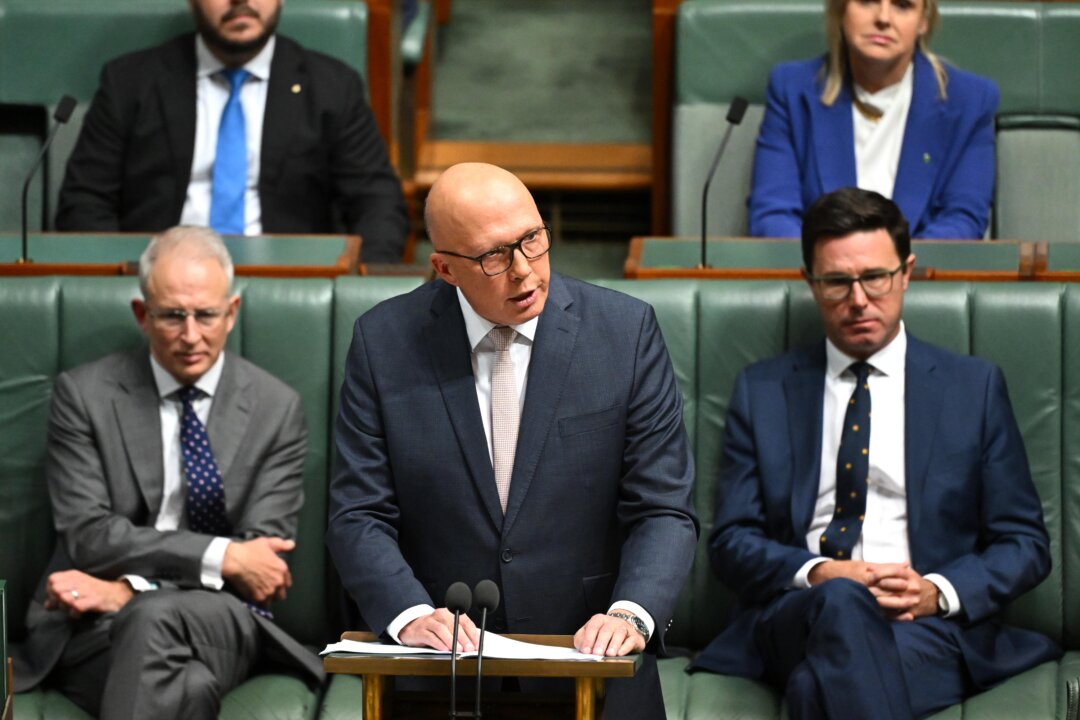A cross-party group of MPs has been looking into transparency standards, following a lobbying scandal involving former Prime Minister David Cameron.
MPs have called for greater transparency in government lobbying and urged for WhatsApp messages to undergo the same scrutiny and disclosure as face-to-face meetings.
Members of the Public Administration and Constitutional Affairs Committee (PACAC) on Thursday recommended blocking the use of non-corporate communication channels (NCCCs) on official devices if transparency measures don’t “command public confidence.”
“Lobbying in Whitehall is recognised as a key feature of our democracy, but the current legislation and transparency regime do not ensure that the public is fully informed about influences being brought to bear on policy formulation, across Government and non-government parties alike,” said PACAC Chair David Jones in a report.
The committee’s report into informal lobbying was launched in the wake of the Greensill scandal.
In 2020, former Prime Minister David Cameron, now Lord Cameron, privately lobbied ministers in efforts to secure access to an emergency COVID-19 loan scheme for Greensill Capital before its collapse.
Lord Cameron placed calls and sent dozens of texts and emails to ministers and senior officials. He was eventually cleared of any wrongdoing, and regulators found Lord Cameron’s activities had not fallen within the criteria that required registration.
Under proposed changes to lobbying transparency, Greensill’s interaction with ministers would have to be disclosed, the committee said.
MPs stressed that WhatsApp and other NCCCs used to communicate with third parties should be subject to the same disclosure regime as other forms of contact.
“Increasingly, lobbying activity is undertaken on instant messaging channels such as WhatsApp and this is an area which we think needs greater transparency, to bring it in line with reporting of face-to-face meetings held with Ministers, in order to increase public confidence in the democratic process,” said Mr. Jones.
Transparency Regime
Transparency of lobbying is dependent on the Lobbying Act 2014 and government transparency releases. Following the Greensill saga, the government requested PACAC to launch an inquiry to conduct post-legislative scrutiny of the lobbying bill.
The government acknowledged that the bill was in need of reform, but ruled out action that would require primary legislation.
In its report, PACAC said that the 2014 law was designed to disclose meetings, gifts, and hospitality involving ministers and senior officials.
Government departments publish their transparency releases on a quarterly basis, which means that “information may be several months old by the time it is released,” the committee said. In that light, PACAC welcomed the efforts to move to monthly releases upon a single platform.
“We welcome the government’s commitment to introduce a single, integrated platform for transparency disclosures and look forward to seeing this introduced as soon as possible, along with a move to more frequent publication of transparency releases,” said Mr. Jones.
Contact made via WhatsApp and other instant messaging platforms should be included in releases, the MPs said. They also recommended that a named official should become accountable for the timeliness and quality of releases.
The lack of disclosure could allow significant lobbying efforts to take place outside the transparency requirements, the committee warned.
It recalled the ongoing public inquiry into the government’s COVID-19 response, which brought to light the ubiquity of WhatsApp and other NCCCs in government.
“A huge volume of messages has been released to the inquiry or, in some cases, has gone missing. The Institute for Government has commented that it would be unwise and unpractical to ban ministers and officials from communicating by means of NCCCs. While we heard no calls for such a ban, we do note the comments of a former Director of GCHQ, Sir David Ormand, that their use is entirely unsuited to proper policy making,” the committee added.
The MPs also urged the government to expand the Register of Consultant Lobbyists, established under the lobbying act.
The register contacts too little information, the MPs argued, adding that it should contain a list of clients on whose behalf lobbying has been conducted and the subject of lobbying, dates of lobbying, and the medium through which lobbying took place.














 English (US) ·
English (US) ·  Turkish (TR) ·
Turkish (TR) ·